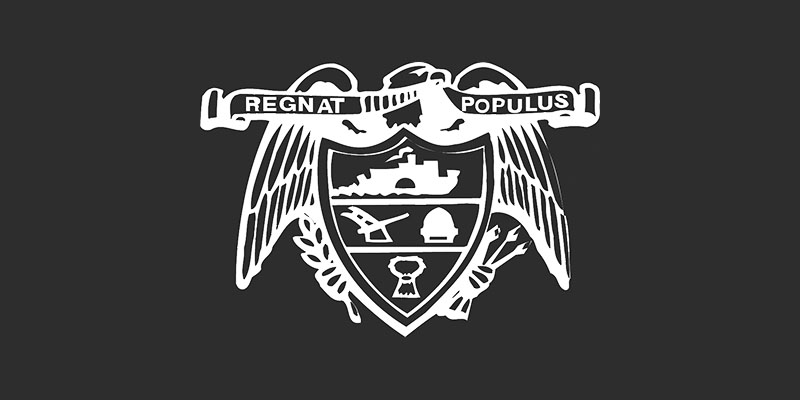
The new "relief" bill from Congress is about to give Arkansas an odd fiscal windfall of $1.67 billion that it doesn't really need. Revenue is healthy. Unemployment is low. The virus is in retreat.
So, what should be done with these funds?
There's a list of allowable ways to spend the federal aid--basically, responding to the pandemic and its economic effects; filling revenue gaps; premium pay for certain workers; and broadband, water and sewer infrastructure investments--but some are vague, and money is fungible. So we should just take the money and cut taxes, right?
Not so fast. Congressional Democrats in D.C. didn't want federal aid to be spent on tax cuts, so they put in a provision that tries to disallow that. It has provoked a lawsuit, and may not pass constitutional muster, but Arkansas policymakers will need to start deliberating before the legal issue is clarified.
Here are some recommendations in rough order of priority.
First, in this unusual situation, consider just sending equal checks to all Arkansans. That would be roughly $550 per person, or just over $2,000 for a family of four. What would your family do with an extra $2,000? Direct checks won't get captured by special interests, or lost in bureaucratic waste. They won't establish new programs that raise the cost of government. Cash giveaways aren't usually great policy, but Arkansas has to play the hand it's dealt, and this might be the least bad option.
Citizens should insist that whatever else the state does with the money is worth more to the citizenry of Arkansas than direct checks would be. Then hold politicians accountable if they blow the money on pet projects.
If federal guidance doesn't allow equal checks to all, then maybe checks should be targeted to essential workers like nurses and grocery-store checkout clerks who risked their lives to keep the economy running over the past year. They deserve it.
Second, the state might top up any reserve funds that were depleted during the pandemic. The Unemployment Insurance (UI) Trust Fund, which helped many households weather the first economic shock of the pandemic last spring, would be a good place to park as much of the money as the feds will allow. It was replenished last fall, but even more money would create space for cuts in the UI tax rate later on, or prevent automatic UI tax hikes during a future recession. Some hasty budget cuts that were put in place in March 2020, when budget forecasts were at their most pessimistic, might be reversed.
Third, real investments such as infrastructure and education can be a good use of one-time funds, but it's very hard to do it well. Broadband, already mentioned by Gov. Asa Hutchinson as an American Rescue Plan priority, is a case in point. Broadband grants got over $100 million in CARES Act funds last year, even as the FCC awarded over $400 million to the state, and Starlink began to launch a fleet of satellites that will provide high-speed Internet from low-earth orbit.
There are still needs, but new state broadband grants might result in wasteful duplication of and/or destabilizing interference with plans to meet those needs that are already underway. Policymakers will need to be very shrewd to navigate among changing technologies and experts with conflicts of interest to accomplish infrastructure investment in an efficient way.
It would also be nice to help people up-skill and re-skill to adapt to a post-pandemic economy probably featuring more telework and fewer downtown restaurants and office building janitors. But we don't really know what skills the post-pandemic economy will need more of.
Fourth, lawmakers should not let American Rescue Plan aid turn into new programs with ongoing annual costs. Any government spending tends to create a political constituency to continue that spending. But Arkansans didn't vote for bigger government. Congress structured the American Rescue Plan to grow state governments, but that shouldn't be what happens.
Finally, Arkansas policymakers should watch evolving federal guidance and related lawsuits to see if, after all, federal aid can somehow be used for tax cuts.
Arkansas' tax code hurts its economic competitiveness in many ways, including income-tax cliffs, a "throwback rule" in the corporate tax code that deters multistate companies from having a presence in Arkansas, and a top income-tax rate that is higher than most neighboring states.
Federal aid would do the most good if it could create fiscal space for smart tax reforms.
Nathan Smith is a legislative research associate at the Arkansas Center for Research in Economics at the University of Central Arkansas. He holds a Ph.D. in economics and has worked in state government, most recently as state broadband manager. The views expressed here are his own and are not an official statement of UCA.
"want" - Google News
April 10, 2021 at 03:12PM
https://ift.tt/3t6LtVN
Want some cash? The new - Northwest Arkansas Democrat-Gazette
"want" - Google News
https://ift.tt/31yeVa2
https://ift.tt/2SsXVPd



